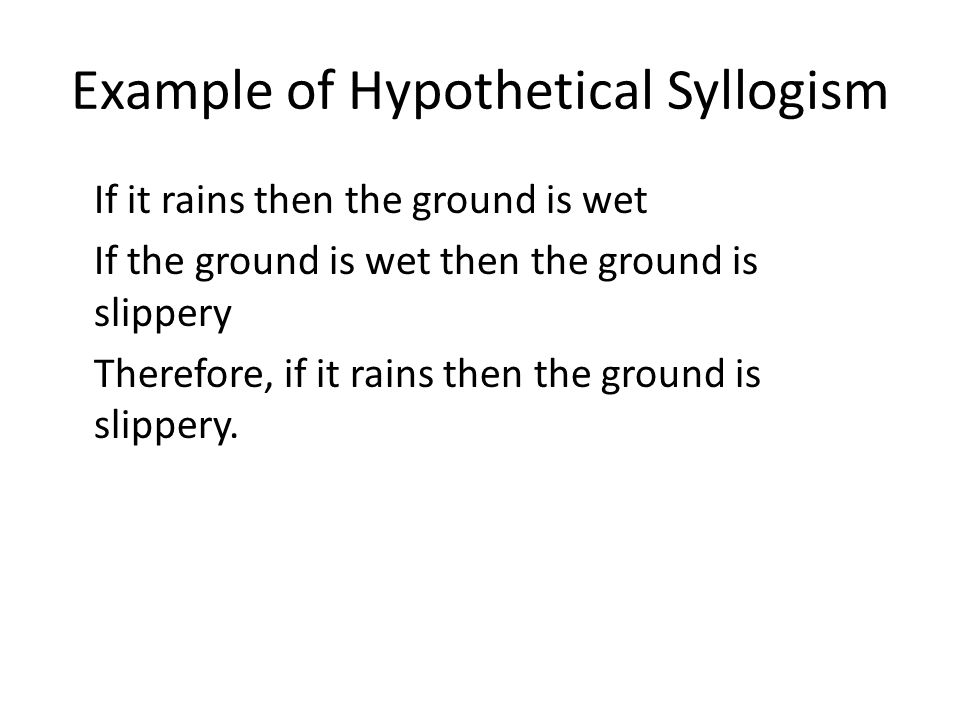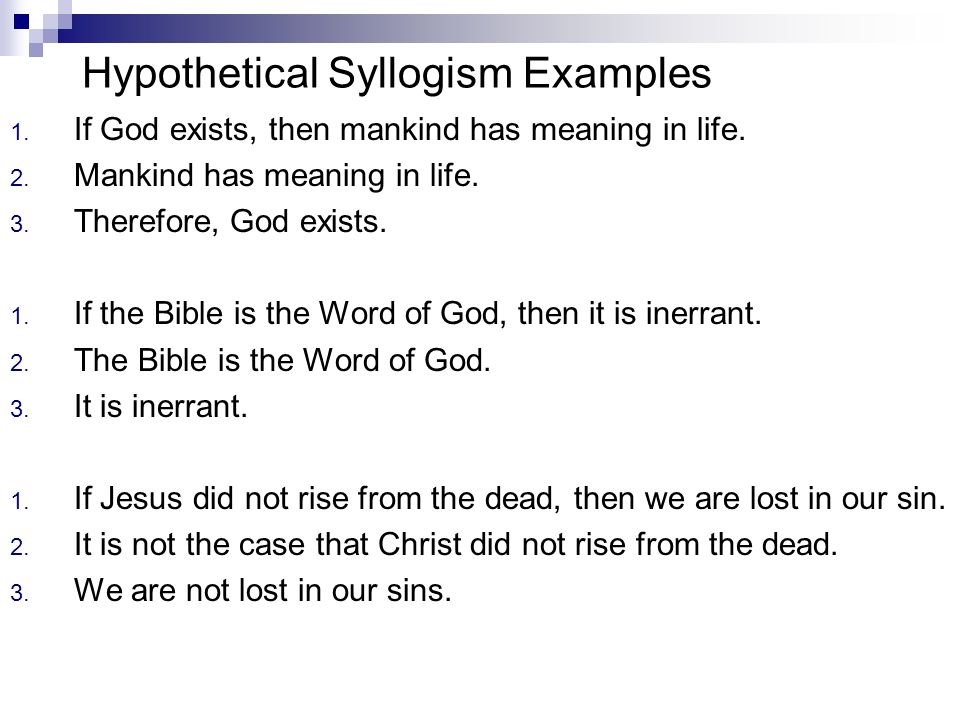What is Hypothetical Syllogism & Hypothetical Syllogism Examples
Hypothetical Syllogism
What is Hypothetical Syllogism?
A hypothetical syllogism is a type of argument in which two statements are given and the conclusion is reached by deducing from them. It is also referred to as a conditional syllogism and is a type of deductive argument that applies the rules of logic to arrive at a particular conclusion. In essence, it means taking two statements and using them to reach the third statement.
The first statement, called the major premise, contains an assertion about what might be true in reality or under certain circumstances; the second statement, called the minor premise, provides evidence for this claim.
If these premises are true then it follows that the conclusion must also be true – because if they were not then there would be no reason to suppose that it would be so either.
The conclusion is thus derived from premises, which are assumed to be true for the purpose of discussion.
The hypothetical syllogism seeks to establish something by reasoning from the way things are in reality, rather than from accepted opinions. This type of deductive reasoning is also called modal logic.
Modal statements tell us something about what could be or must be the case. Such claims can come in many forms. Example: No one can be both a bachelor and married. (‘Bachelor’ means ‘unmarried man’.)
Hypothetical syllogisms are used when the conclusion is not about reality and it means that conclusion follows logically from the premises, no matter what they are.
Example:
“If A implies B, and B implies C, then A implies C”
💥🎁 New Year & Easter Deals On Amazon !
Don't miss out on the best discounts and top-rated products available right now!
🛒 Shop Now and Save Big Today!*As an Amazon Associate, I earn from qualifying purchases.
This argument can also be written as “A -> B -> C”, where -> means “implies”
Hypothetical Syllogism Examples
A hypothetical syllogism is a type of hypothetical reasoning that draws conclusions about reality based on assumptions
An example of an argument using hypotheticals would be: “If I buy this dress, then I will have enough money to buy dinner.”
An example of a hypothetical syllogism would be
Major Premise: “If it rains, then I will get wet”
Minor Premise: ” If the ground is wet then the ground is slippery”
Conclusions: “If it rains then the ground is slippery”

Other examples of Hypothetical Syllogism
